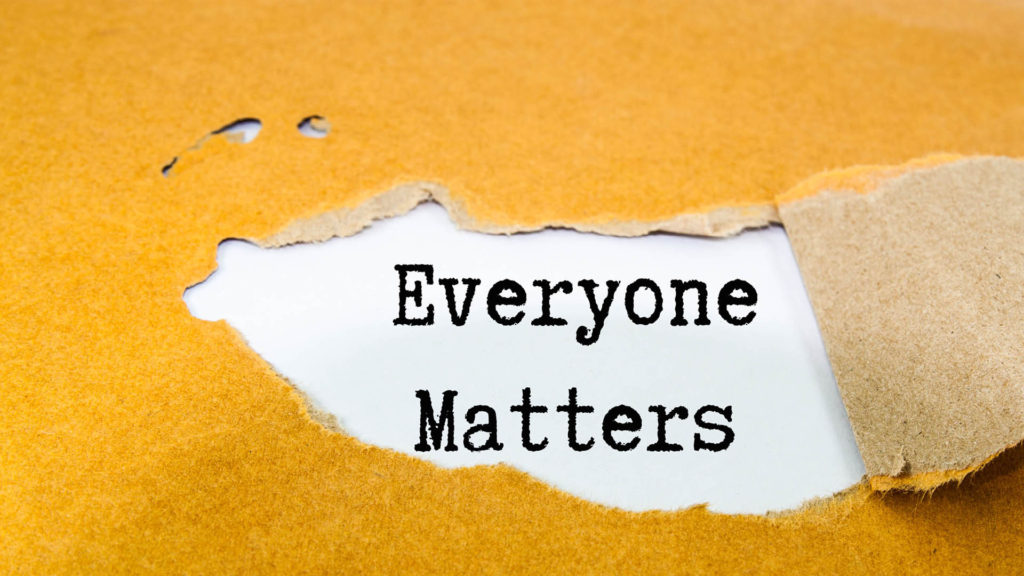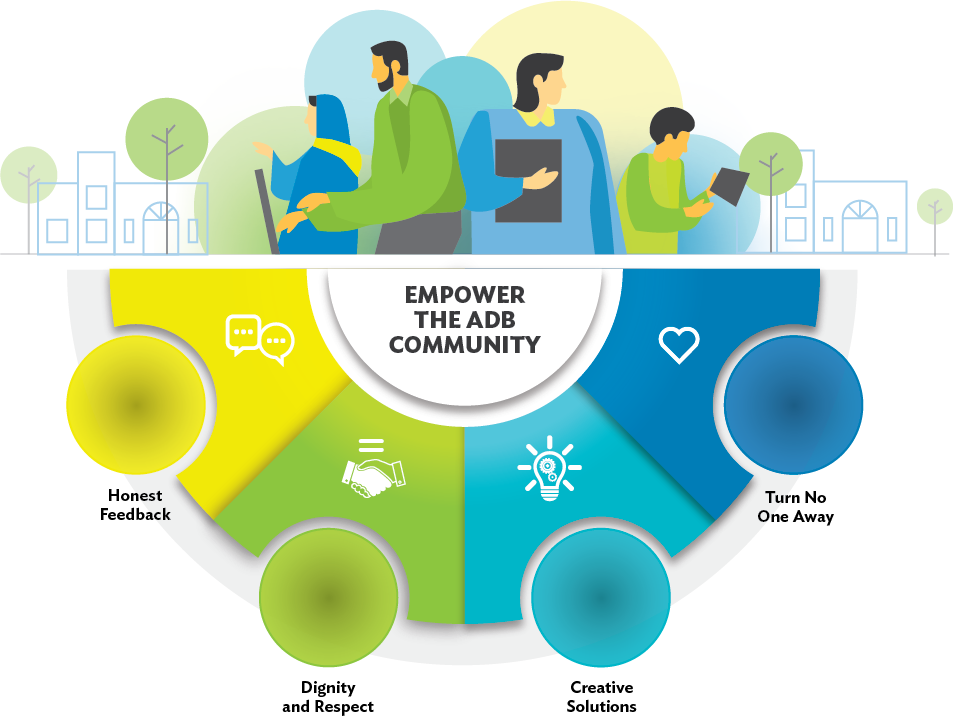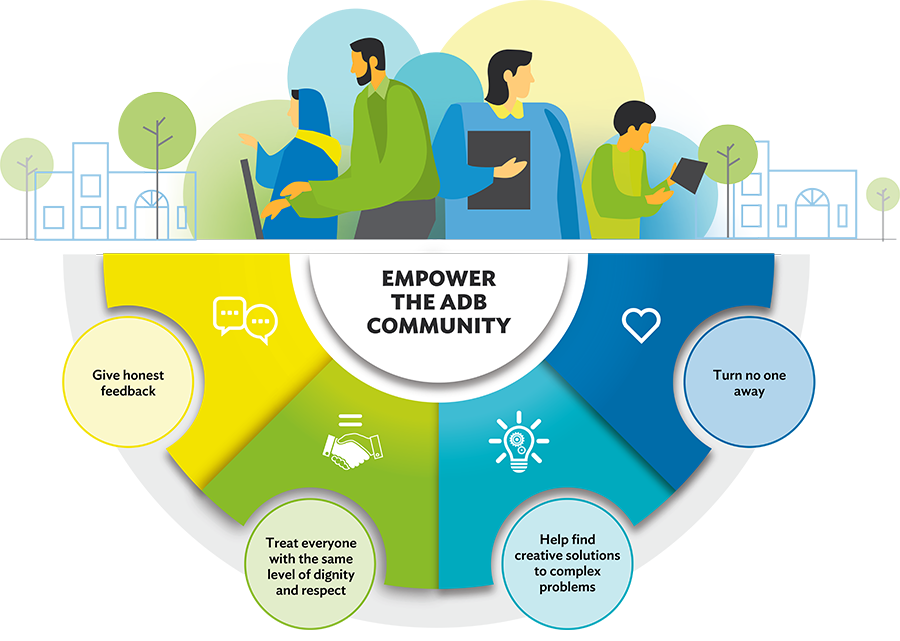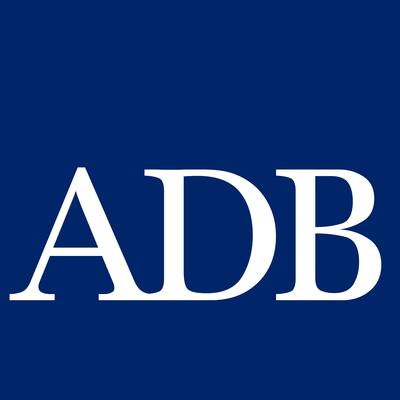The Office of the Ombudsperson is a confidential, informal, and neutral resource with a unique level of autonomy due to its independence from other parts of the organizational structure.
The Asian Development Bank (ADB) established the Office of the Ombudsperson (OOMP or the Ombuds Office) on 27 April 2011 through Administrative Order 2.14. In doing so, ADB joined an increasing number of organizations that find considerable benefits in providing staff with informal resources to help prevent and manage workplace conflicts.
We adhere to the Standards of Practice and Code of Ethics of the International Ombuds Association (IOA).

The ombudsperson provides analysis, relevant and timely advice, and upward feedback to the President and the Management team and, as needed, to members of the Board of Directors. Observations about trends and patterns of conflict and conflict management practices within the organization are also shared with managers, supervisors, and the entire ADB community.

Our Guiding Principles
The IOA Standards of Practice and Code of Ethics are the values that guide us; still, the Ombuds team and ADB’s organizational culture define the way we practice.












As ADB’s only confidential and informal resource, our office does not have a duty to report any information we obtain from conversations with members of the ADB community. Consequently, a conversation with us does not put the organization on notice. Still, we benefit from each exchange and consider each consultation a learning opportunity for us and the organization.
What We Can Do
- Practice active listening without judgement.
- Conduct conflict analysis and mapping.
- Provide guidance on problem-solving and assist in strategizing the next steps.
- Conduct informal information gathering or fact-finding.
- Conduct informal mediation.
- Facilitate difficult conversations.
- Shuttle diplomacy.
- Move information between parties who may not know who the other party is.
- Offer coaching options, including conflict management coaching, executive coaching, negotiation coaching, and team coaching.
- Provide training on conflict management, when requested.
- Help build a risk-aware culture and recommend changes to address systemic organizational issues.
What We Cannot Do
- Create policies.
- Conduct formal investigations.
- Offer legal advice.
- Provide psychological counselling.
- Participate in formal processes.
- Overrule decisions of those who have the authority to make them.
- Serve as an advocate.



